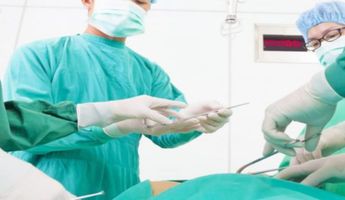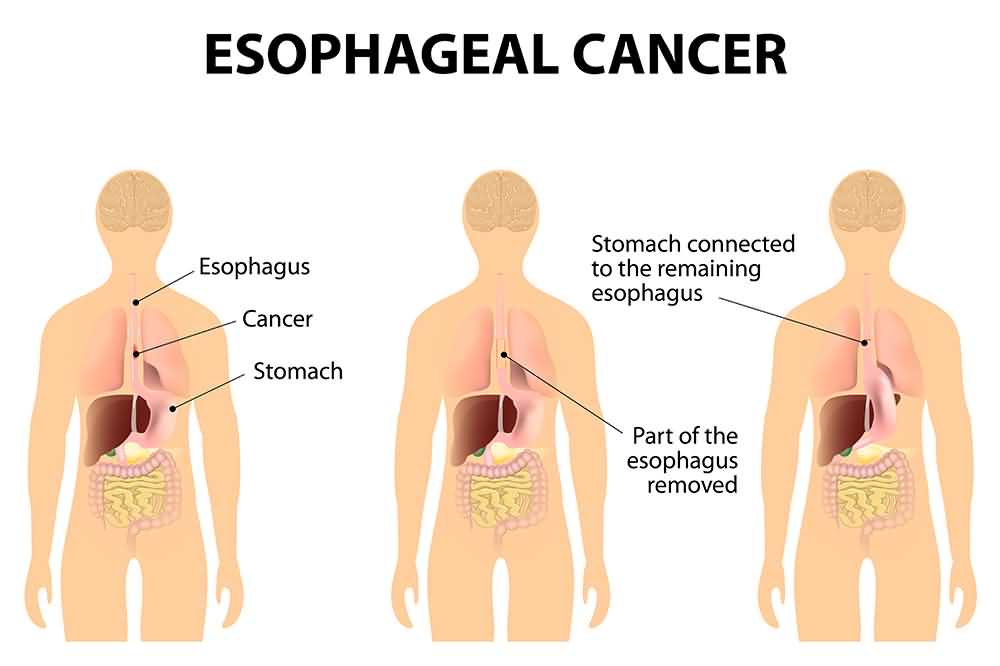Esophageal Cancer Surgery in Belgium
Search and Compare the Best Clinics and Doctors at the Lowest Prices for Esophageal Cancer Surgery in Belgium

Find the best clinics for Esophageal Cancer Surgery in Belgium
No clinics available
India offers the best prices Worldwide
Price: $ 4,140

- Home
- Belgium
WHY US?
At Medijump, we're making medical easy. You can search, compare, discuss, and book your medical all in one place. We open the door to the best medical providers worldwide, saving you time and energy along the way, and it's all for FREE, no hidden fees, and no price markups guaranteed. So what are you waiting for?

Free

Best Price

Widest Selection

Risk-Free
What you need to know about Esophageal Cancer Surgery in Belgium

Esophageal cancer occurs anywhere along the esophagus (the long and hollow tube that runs from the throat to the stomach). Surgery for esophageal cancer is often used to try to remove cancer and some of the normal tissue that surrounds it for some earlier stage cancers. In some cases, the surgery may be combined with other types of treatment, such as radiation therapy and/or chemotherapy.
What does a Esophageal Cancer Surgery Procedure Involve?
Esophageal cancer surgery is performed under general anesthesia. The surgery is done using the standard open technique in which your surgeon makes one large incision in the chest or abdomen, or minimally invasive where your surgeon makes several small incisions. During the surgery, your surgeon will try to remove the tumor and some healthy tissue that surrounds it or removes some or most of the esophagus (esophagectomy). In some cases, a small upper portion of your stomach is removed as well (esophagogastrectomy).
How Long Should I Stay in Belgium for a Esophageal Cancer Surgery Procedure?
You will be staying 7 to 10 days in the hospital following the surgery, but plan to stay in Belgium for 10 to 14 more days after you are discharged from the hospital. During your stay in the country, you will be under a close monitor of your surgeon. Stitches are usually removed within 14 days.
What's the Recovery Time for Esophageal Cancer Surgery Procedures in Belgium?
Esophageal cancer surgery is not a simple procedure, therefore, it may require long recovery time. You should not do any strenuous activity (including intense exercise and heavy lifting) for about 8 weeks after the surgery and you will need tube feeding (enteral nutrition) for 4 to 6 weeks to ensure adequate nutrition. Talk to your doctor about your recovery timeline, including when you can return to work and resume your daily activities.
What sort of Aftercare is Required for Esophageal Cancer Surgery Procedures in Belgium?
Since your stomach size is likely reduced after the surgery, you need to adjust your diet and eat more frequently in smaller quantities. Your doctor may recommend follow-up care to prevent complications, including lung therapy, nutritional assessments, pain management, and psychosocial care. You also need to attend regular follow-up checkups to make sure the tumor has not returned and there are no new tumor growths.
What's the Success Rate of Esophageal Cancer Surgery Procedures in Belgium?
Surgery for esophageal cancer is known to be highly successful. Patients who undergo surgery are more likely to survive long term than those who did not. However, like all serious operations, esophageal cancer surgery has some side effects and risks, including lung complications, voice changes, infection, bleeding, cough, leakage from the surgical connection of the stomach and the esophagus, acid or bile reflux, dysphagia, and reaction to anesthesia.
Are there Alternatives to Esophageal Cancer Surgery Procedures in Belgium?
In some cases, your doctor may recommend chemotherapy (to kill cancer cells using drugs) or radiation therapy (to kill cancer cells using high-powered X-ray beams) along with or instead of surgery. Make sure to discuss with your doctor, the best option for you as well as the risk and benefit of each procedure.
What Should You Expect Before and After the Procedure
Esophageal cancer causes symptoms such as dysphagia, unintentional weight loss, chest pain, heartburn, coughing, and hoarseness. It may interfere with your ability to perform your daily activities and it can lead to dangerous complications. After the surgery, some of your symptoms should be relieved and your quality of life will be improved significantly.
Whilst the information presented here has been accurately sourced and verified by a medical professional for its accuracy, it is still advised to consult with your doctor before pursuing a medical treatment at one of the listed medical providers
No Time?
Tell us what you're looking for and we'll reachout to the top clinics all at once
Enquire Now

Popular Procedures in Belgium
Prices Start From $131

Prices Start From $47

Recommended Medical Centers in Belgium for procedures similar to Esophageal Cancer Surgery

- Interpreter services
- Translation service
- Religious facilities
- Medical records transfer
- Medical travel insurance
- Health insurance coordination
- TV in the room
- Safe in the room
- Phone in the room
- Private rooms for patients available

- Interpreter services
- Translation service
- Religious facilities
- Medical records transfer
- Medical travel insurance
- Health insurance coordination
- TV in the room
- Safe in the room
- Phone in the room
- Private rooms for patients available

- Interpreter services
- Translation service
- Religious facilities
- Medical records transfer
- Medical travel insurance
- Health insurance coordination
- TV in the room
- Safe in the room
- Phone in the room
- Private rooms for patients available

- Interpreter services
- Translation service
- Religious facilities
- Medical records transfer
- Medical travel insurance
- Health insurance coordination
- TV in the room
- Safe in the room
- Phone in the room
- Private rooms for patients available

- Interpreter services
- Translation service
- Religious facilities
- Medical records transfer
- Medical travel insurance
- Health insurance coordination
- TV in the room
- Safe in the room
- Phone in the room
- Private rooms for patients available

- Interpreter services
- Translation service
- Religious facilities
- Medical records transfer
- Medical travel insurance
- Health insurance coordination
- TV in the room
- Safe in the room
- Phone in the room
- Private rooms for patients available
Esophageal Cancer Surgery in and around Belgium
Belgium is one of the smallest and most densely populated countries in Europe and has some of Europe’s finest cuisine, including the creamiest chocolates and a wide variation of beers. In addition, it is home to extensive beaches, postcard-worthy dunes, historic cities, and beautiful countryside, with belfries, castles, and carnivals. Belgium has enjoyed a growing reputation for being excellent medical tourism as well as the country boasts immaculate clinical standards. The medical centers in the country offer a wide range of specializes treatments, short waiting time, highly-trained medical professionals, and considerably lower medical costs. Orthopedics and heart surgery are the most sought after procedures in Belgium.
Popular Parts of Belgium
Brussels is the capital of Belgium, as well as home to European Union official seats and NATO headquarters. Here, visitors can see Europe’s grandest squares, visit the beloved statue of a little boy peeing into a basin (Manneken Pis), explore Musées Royaux des Beaux-Arts, and admire the magnificent Grand Palace. Bruges, a pickled Gothic city, is also worth a visit. The key attractions in the city are the 14th-century town hall, the Cathedral of the Holy Savior, and the Belfry Tower. Other popular cities include Antwerp and Ghent. While Antwerp is famous for its fashion and excellent museums, Ghent is best known for its historic quarter and stunning Van Eyck altarpiece in its colossal cathedral.
Weather and Climate in Belgium
Belgium has four distinct seasons. Summer in the country is relatively short, starting in July and ending in August. The season is warm, with bearable heat and some intermittent rain. Winter comes in November and extends until March. It can get rather wet and chilly during this season, with an average temperature of around 3 - 7°C. Spring (April – June) and autumn (September – October) are generally nice and warm, with an average temperature of around 10 - 15°C.
Getting around in Belgium
The main international airport in Belgium is Brussels Airport. It serves flights to many major cities around the world, including Copenhagen, Doha, London, New York, Atlanta, Casablanca, and Bangkok. Since Belgium is a small country, there are no domestic flights. The public transport system in the country is extremely well-organized and reasonably priced. The best way to get around the country is by train. The trains are affordable, fast, frequent, very punctual, and have a comprehensive network of lines. Buses tend to be used in conjunction with train services, so you will likely need a train-bus combination when traveling, especially to rural areas. Inside cities, the transport systems are centered on buses, but there are also metro and trams in Brussels and Antwerp. Taxis are plentiful in all cities and ensure to hire metered official taxis, which have standard fares.
Tourist Visas in Belgium
Belgium is part of the Schengen Area, so nationals of EU/EEA countries do not need a visa to visit the country regardless of their length of stay or purpose of travels. Citizens of 62 countries, including Canadian, Australian, and US nationals, can stay in the country without a visa for up to 90 days. Belgium Visa for Medical reasons is available for people who need to obtain medical care in the country.
Additional Information
- Local Currency: Belgium adopted the euro (€) in 2002. The exchange rate from US$1 is around €0.85 (€1 is around US$1.17).
- Money & Payments: All towns and cities have cashpoints that are compatible with international banking networks. Credit Cards, particularly MasterCard and Visa, are widely accepted in major cities and towns. Always have some cash on you when traveling to smaller villages. Tipping is not standard practice but appreciated.
- Local Language: Dutch, German, and French are the official languages in Belgium. English is widely spoken.
- Local Culture and Religion: About 65% of the population is Christian, with a large portion adhere to Roman Catholicism. There are also some small communities of Jewish, Muslim, and Buddhist.
- Public holidays: Some important public holidays in Belgium include New Year’s Day, Easter Monday, Ascension Day, Whit Monday, Independence Day, and Christmas Day.
Popular Searches
- Plastic Surgery in Thailand
- Dental Implants in Thailand
- Hair Transplant in Thailand
- Breast Augmentation Thailand
- Gastric Sleeve in Thailand
- Gender Reassignment Surgery in Thailand
- Laser Hair Removal in Bangkok
- Botox in Bangkok
- Dermatology in Bangkok
- Breast Augmentation in Bangkok
- Coolsculpting in Bangkok
- Veneers in Turkey
- Hair Transplant in Turkey
- Rhinoplasty in Turkey
- Stem Cell Therapy in Mexico
- Rhinoplasty in Mexico
- Liposuction in Mexico
- Coolsculpting in Tijuana
- Rhinoplasty in Korea
- Scar Removal in Korea
- Gastric Sleeve in Turkey
- Bone Marrow Transplant in India
- Invisalign in Malaysia
- Plastic Surgery in the Dominican Republic
- Tummy Tuck in the Dominican Republic
- Plastic and Cosmetic Surgery in Poland
- Rhinoplasty in Poland
- Hair Implant in Poland
- Dental Implants in Poland
- IVF in Turkey